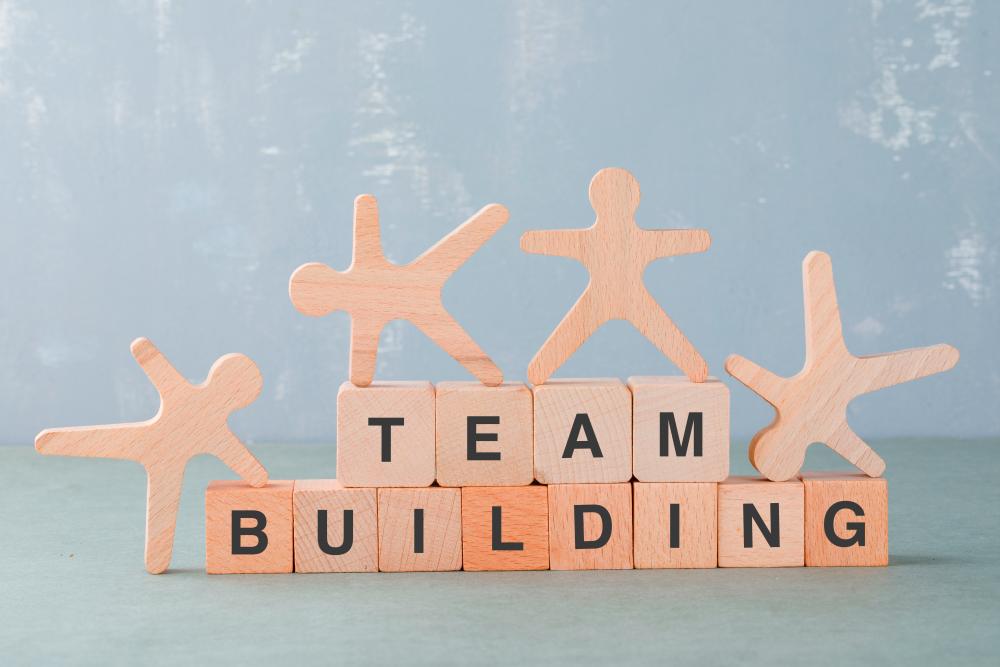IN the contemporary business landscape, team building has emerged as a critical component for organisations aiming to thrive in a competitive and rapidly changing environment. The ability to work cohesively as a team has become increasingly vital, as it fosters innovation, productivity, and overall success. By examining the benefits of team-building activities, both in terms of individual growth and collective achievements, we gain a deeper understanding of how team-building initiatives contribute to the long-lasting success of companies.
Enhanced communication and collaboration
Effective communication lies at the core of successful teamwork. Team-building activities play a pivotal role in improving communication and collaboration within a group. Through interactive exercises such as trust-building activities, problem-solving challenges, and role-playing scenarios, team members develop strong interpersonal connections, trust, and effective communication channels. These activities encourage open dialogue, active listening, and empathy among team members, facilitating the exchange of ideas, feedback, and information.
As a result, teams become better equipped to articulate their thoughts, express concerns, and resolve conflicts amicably. Improved communication within a team translates into enhanced knowledge sharing, reduced misunderstandings, and the ability to work more cohesively towards shared goals. It also creates an inclusive environment where diverse perspectives are valued and respected, fostering creativity and innovation.

Strengthened problem-solving skills
Team-building activities often incorporate problem-solving scenarios, which allow teams to develop and strengthen their collective problem-solving skills. These exercises present challenges that require members to collaborate, think critically, and explore innovative solutions. By engaging in such activities, individuals learn to leverage the diverse expertise and perspectives of their team members. This fosters a culture of collaboration where every voice is heard and collective intelligence is harnessed to find effective solutions.
Team-building activities that focus on problem-solving help teams develop skills such as brainstorming, analysing complex situations, identifying root causes, and evaluating potential solutions. This enhances the team’s ability to tackle immediate challenges and equips them with transferable skills that can be applied to future problems. The process of collectively working towards solutions boosts team members’ confidence and enhances their adaptability, enabling them to navigate through uncertainties and build resilience.

Increased employee productivity
Employee engagement and morale are crucial factors that contribute to organisational success. Team-building initiatives have a direct impact on these aspects, creating a positive work environment where employees feel valued, connected, and motivated. By providing opportunities for employees to engage in team-building activities, organisations foster a sense of belonging and camaraderie. This, in turn, leads to higher employee morale, job satisfaction, and reduced turnover rates.
When team members feel supported and recognised for their contributions, they are more likely to be engaged in their work, exhibit higher levels of productivity, and actively contribute to the team’s success. Team-building activities also promote a culture of continuous learning and growth, allowing employees to develop new skills, collaborate with diverse colleagues, and explore their potential. This not only enhances their job satisfaction but also instills a sense of purpose and pride in their work.
Improved team dynamics
Strong team dynamics are essential for driving organisational performance. Team-building activities contribute to the development of cohesive and high-performing teams. By fostering trust, effective communication, and shared goals, these activities create a positive team culture where members can rely on each other, delegate tasks efficiently, and work synergistically towards achieving targets. When individuals feel connected and supported within their teams, they are more likely to contribute their best efforts, collaborate seamlessly, and proactively address challenges.
This leads to improved problem-solving, increased creativity, and enhanced decision-making. Moreover, team-building activities provide opportunities for leaders to observe the strengths and weaknesses of team members, enabling them to assign roles and responsibilities that align with individual capabilities.

This optimal utilisation of talents leads to better team performance and overall organisational success. Additionally, team-building initiatives promote effective cross-functional collaboration by breaking down silos and fostering a spirit of cooperation across different departments and functions.
Team building is a crucial ingredient for organisations seeking sustainable success in a dynamic and competitive business landscape. By fostering enhanced communication and collaboration, strengthening problem-solving skills, and boosting employee engagement, morale, and productivity, team building activities play a pivotal role in driving organisational performance. They create a positive work environment, nurture strong team dynamics, and cultivate a culture of continuous learning and improvement.
Investing in team-building initiatives is an investment in the long-term success of organisations, as it not only enhances individual growth but also empowers teams to achieve collective goals. As businesses recognise the significance of cohesive and high-performing teams, prioritising team building becomes imperative for fostering innovation, adaptability, and achieving strategic objectives in the ever-evolving world of work.









